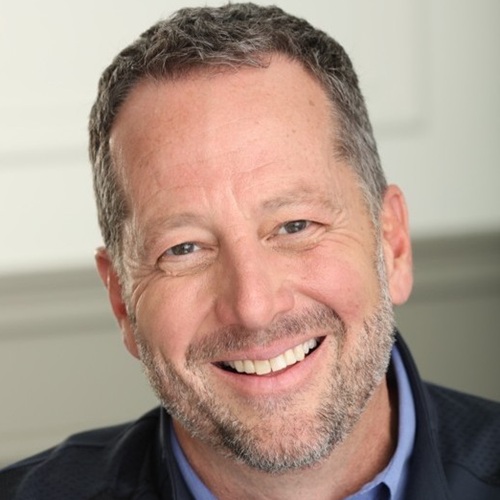Are AI Search Results Ghosting Your LinkedIn Posts? This Could Be Why
Posts generated by AI don't hold enough authority with AI search engines to significantly boost your visibility (yes, that's ironic!). Here's what you can do instead.


Profit and prosper with the best of Kiplinger's advice on investing, taxes, retirement, personal finance and much more. Delivered daily. Enter your email in the box and click Sign Me Up.
You are now subscribed
Your newsletter sign-up was successful
Want to add more newsletters?

Delivered daily
Kiplinger Today
Profit and prosper with the best of Kiplinger's advice on investing, taxes, retirement, personal finance and much more delivered daily. Smart money moves start here.

Sent five days a week
Kiplinger A Step Ahead
Get practical help to make better financial decisions in your everyday life, from spending to savings on top deals.

Delivered daily
Kiplinger Closing Bell
Get today's biggest financial and investing headlines delivered to your inbox every day the U.S. stock market is open.

Sent twice a week
Kiplinger Adviser Intel
Financial pros across the country share best practices and fresh tactics to preserve and grow your wealth.

Delivered weekly
Kiplinger Tax Tips
Trim your federal and state tax bills with practical tax-planning and tax-cutting strategies.

Sent twice a week
Kiplinger Retirement Tips
Your twice-a-week guide to planning and enjoying a financially secure and richly rewarding retirement

Sent bimonthly.
Kiplinger Adviser Angle
Insights for advisers, wealth managers and other financial professionals.

Sent twice a week
Kiplinger Investing Weekly
Your twice-a-week roundup of promising stocks, funds, companies and industries you should consider, ones you should avoid, and why.

Sent weekly for six weeks
Kiplinger Invest for Retirement
Your step-by-step six-part series on how to invest for retirement, from devising a successful strategy to exactly which investments to choose.
Appearing prominently in AI search engine answers is becoming critical for marketers, so posting content on LinkedIn can seem to many like time well-spent.
But a dive into generative AI's authority frameworks — the technical mechanisms and conceptual approaches that large language models (LLMs) use to determine the credibility of information and sources — suggests all that posting effort is more of a placebo for visibility-hungry marketers.
There's considerable evidence — including direct output from ChatGPT itself — that LinkedIn posts don't carry enough authority weight to land a company or an expert in an LLM's answers.
From just $107.88 $24.99 for Kiplinger Personal Finance
Become a smarter, better informed investor. Subscribe from just $107.88 $24.99, plus get up to 4 Special Issues

Sign up for Kiplinger’s Free Newsletters
Profit and prosper with the best of expert advice on investing, taxes, retirement, personal finance and more - straight to your e-mail.
Profit and prosper with the best of expert advice - straight to your e-mail.
Kiplinger's Adviser Intel, formerly known as Building Wealth, is a curated network of trusted financial professionals who share expert insights on wealth building and preservation. Contributors, including fiduciary financial planners, wealth managers, CEOs and attorneys, provide actionable advice about retirement planning, estate planning, tax strategies and more. Experts are invited to contribute and do not pay to be included, so you can trust their advice is honest and valuable.
Growing use of LinkedIn
The continuing steep growth of both users and revenue at LinkedIn provides evidence of business professionals pouring more time and energy into the social media platform. The Microsoft-owned site says that 1.8 million feed updates are viewed every minute on the platform.
That has caused a proliferation of low-cost services and AI-powered tools that will create LinkedIn content on a company's or executive's behalf.
Companies such as Manila-based MicroSourcing, for instance, will outsource LinkedIn posts for you using "dedicated Filipino teams," while other platforms, such as Hootsuite and Grammarly, will give you a free AI-powered tool to generate LinkedIn posts.
But while generating low-cost posts might provide comfort for anxious chief marketing officers, the authority frameworks of generative search engines don't reward or elevate posters based on volume.
These frameworks serve as a kind of information filter, seeking to pull out low-credibility sources and provide a kind of machine-vetting for the answers it provides.
AI models such as OpenAI's ChatGPT series and Google's Gemini evaluate content through five primary lenses:
Source reputation. The digital provenance of an article matters, so the authority attributed to a piece published in The New York Times, recent questions about political bias notwithstanding, will rank very highly, as will pieces published in academic or legal journals.
Most trade news outlets retain a high degree of authority, despite that industry's financial decline.
But LinkedIn, as a platform, sits low in this hierarchy because of its social media structure and high volume of self-promotional and AI-generated material — which authority frameworks, ironically, don't like one bit.
Semantic authority. Search engines assess the tone, precision and evidentiary quality of a piece. They like formal patterns of language that connote authority. LinkedIn posts lean toward conversational, promotional or vernacular language.
Citation networks. Authority frameworks rank content that's frequently cited by other authoritative sources very highly.
Think of Marc Andreessen's Software Eats the World essay, published in The Wall Street Journal in 2011, which has been cited and linked to repeatedly for more than a decade.
LinkedIn posts almost never generate this kind of downstream citation.
Content coherence. Engines evaluate whether the piece hangs together factually and analytically. It looks for focus and depth. Shallow or contradictory posts score poorly. Most LinkedIn posts aren't developed with that level of care, focus or thoroughness.
Temporal relevance. Timeliness matters, but only alongside the other factors. LinkedIn can deliver timely commentary, but it's not enough to offset the other weaknesses.
Even though some pre-2023 LinkedIn data was used by OpenAI to train ChatGPT, standard LinkedIn posts don't register highly enough on those five AI authority angles to move the visibility needle.
AI-generated posts unlikely to show up in AI search
If a LinkedIn post is AI-generated, as more than half of longer-form posts on the platform were shown to be in a recent study, the chances of it helping a firm show up in AI results are negligible.
This is why an aggressive stream of LinkedIn posts, however well-meaning, rarely improves individual or company visibility where it really matters: Inside the AI engines that are increasingly shaping commercial discovery.
It's a vexing problem, given that traditional search results differ so dramatically from the answers that AI presents.
Looking for expert tips to grow and preserve your wealth? Sign up for Adviser Intel (formerly known as Building Wealth), our free, twice-weekly newsletter.
A quick search for any specific business-related term can quickly illustrate just how big the problem is.
For example, a standard Google search for "best non-Big Four accounting firm for quality of earnings work" returned about 300 results spread across 20 pages. That includes accounting firm websites, sponsored ads splashed across every results page and numerous "guide to best accounting firms" articles.
The same prompt given to ChatGPT returned the names of five firms, with a detailed description of why each made that shortlist. The five that did had a digital authority trail.
The 85,000 accounting firms that didn't make ChatGPT's list? They're invisible to the person making the inquiry.
What does this mean for experts?
A new kind of "publish or vanish" dynamic has arrived, paralleling the old "publish or perish" maxim in academia.
The best advice is to pour more focus and effort into work that can actually earn an authoritative, high-provenance publication rather than effecting a "spray and pray" strategy on LinkedIn.
LinkedIn has important uses as a business directory and a tool for recruiting and networking.
But expecting it to be the engine of an AI visibility strategy is like training for the Olympics by walking around the block: It isn't harmful, but it isn't getting you any closer to gold either.
Related Content
- AI Start-ups Are Rolling in Cash
- What is AI Worth to the Economy?
- The Rise of AI: A Kiplinger Special Report
- How to Mix Professional, Personal Posts on Social Media
- Small Businesses Are Racing to Use AI
Profit and prosper with the best of Kiplinger's advice on investing, taxes, retirement, personal finance and much more. Delivered daily. Enter your email in the box and click Sign Me Up.

Dave Maney is the CEO of The Expert Press, Inc., a provider of software, data and services that enable experts to become prolific national news contributors and commentators. He is also a regular contributor for both Real Clear Markets, Ad Week and Fox Business News. Maney began his career at the San Francisco Chronicle Publishing Company as Assistant to the President of the Newspaper Division. Additionally, he was a business reporter, covering stories for the Chronicle and its other owned newspapers, the Bloomington (IL) Pantagraph and the Worcester (MA) Telegram & Gazette.
-
 Quiz: Do You Know How to Avoid the "Medigap Trap?"
Quiz: Do You Know How to Avoid the "Medigap Trap?"Quiz Test your basic knowledge of the "Medigap Trap" in our quick quiz.
-
 5 Top Tax-Efficient Mutual Funds for Smarter Investing
5 Top Tax-Efficient Mutual Funds for Smarter InvestingMutual funds are many things, but "tax-friendly" usually isn't one of them. These are the exceptions.
-
 AI Sparks Existential Crisis for Software Stocks
AI Sparks Existential Crisis for Software StocksThe Kiplinger Letter Fears that SaaS subscription software could be rendered obsolete by artificial intelligence make investors jittery.
-
 5 Top Tax-Efficient Mutual Funds for Smarter Investing
5 Top Tax-Efficient Mutual Funds for Smarter InvestingMutual funds are many things, but "tax-friendly" usually isn't one of them. These are the exceptions.
-
 AI Sparks Existential Crisis for Software Stocks
AI Sparks Existential Crisis for Software StocksThe Kiplinger Letter Fears that SaaS subscription software could be rendered obsolete by artificial intelligence make investors jittery.
-
 Why Invest In Mutual Funds When ETFs Exist?
Why Invest In Mutual Funds When ETFs Exist?Exchange-traded funds are cheaper, more tax-efficient and more flexible. But don't put mutual funds out to pasture quite yet.
-
 Social Security Break-Even Math Is Helpful, But Don't Let It Dictate When You'll File
Social Security Break-Even Math Is Helpful, But Don't Let It Dictate When You'll FileYour Social Security break-even age tells you how long you'd need to live for delaying to pay off, but shouldn't be the sole basis for deciding when to claim.
-
 I'm an Opportunity Zone Pro: This Is How to Deliver Roth-Like Tax-Free Growth (Without Contribution Limits)
I'm an Opportunity Zone Pro: This Is How to Deliver Roth-Like Tax-Free Growth (Without Contribution Limits)Investors who combine Roth IRAs, the gold standard of tax-free savings, with qualified opportunity funds could enjoy decades of tax-free growth.
-
 One of the Most Powerful Wealth-Building Moves a Woman Can Make: A Midcareer Pivot
One of the Most Powerful Wealth-Building Moves a Woman Can Make: A Midcareer PivotIf it feels like you can't sustain what you're doing for the next 20 years, it's time for an honest look at what's draining you and what energizes you.
-
 Stocks Make More Big Up and Down Moves: Stock Market Today
Stocks Make More Big Up and Down Moves: Stock Market TodayThe impact of revolutionary technology has replaced world-changing trade policy as the major variable for markets, with mixed results for sectors and stocks.
-
 I'm a Wealth Adviser Obsessed With Mahjong: Here Are 8 Ways It Can Teach Us How to Manage Our Money
I'm a Wealth Adviser Obsessed With Mahjong: Here Are 8 Ways It Can Teach Us How to Manage Our MoneyThis increasingly popular Chinese game can teach us not only how to help manage our money but also how important it is to connect with other people.